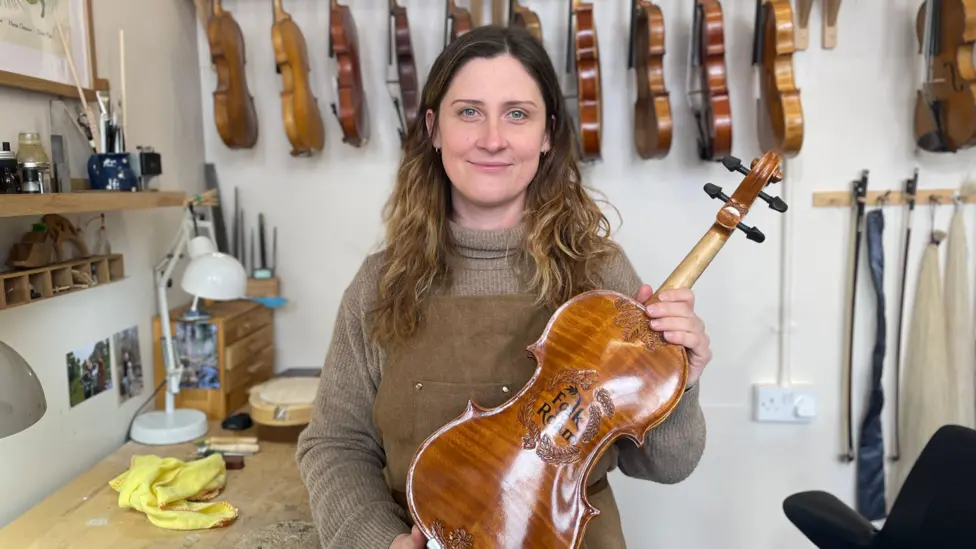For 145 years, Sheffield’s red-brick Portland Works has been a focus for craftspeople in the city.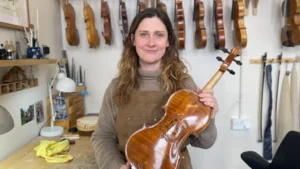
The rambling complex of Victorian workshops, which opened in 1879, was once home to some of Sheffield’s famous “Little Mesters”.
They were the backbone of the city’s world-renow ned cutlery and toolmaking industries.
The building went on in 1914 to become the first place in the world where stainless steel cutlery was manufactured.
However, almost a century on from that landmark moment, in 2009, the proud heritage of Portland Works seemed to be about to come to an end, with the Grade II* listed building on the verge of being turned into flats.
It took the efforts of a determined group of campaigners to ensure it would instead become home to a new generation of creatives, finally becoming a fully-fledged community-owned venture in 2013.
More than 30 craftspeople now use the works, including a specialist knife-maker, engravers, bike makers and artists.
Over a decade on from the community takeover, the BBC has been back there to meet the people who continue to ensure the site remains a busy and thriving centre for craftspeople in Sheffield.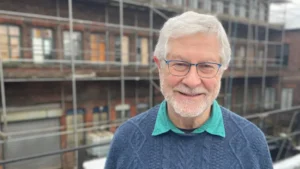
“It is the birthplace of stainless steel cutlery,” explains Peter de Lange, 73, chair of Portland Works.
“It’s really a vital part of Sheffield’s history,” he says.
That is perhaps why, over a decade ago, so many people rallied round and raised £350,000 to buy the site themselves.
About 450 people contributed, with amounts donated ranging from £100 to £20,000.
They ensured the tradition of craftsmen and women working at Portland Works could continue – all under one roof.
Mr de Lange adds that the Victorian workshops at the site are always kept affordable to rent.
“We are providing low cost start-up units for craftsmen,” he says.
“We’re helping to perpetuate the spirit of the ‘Little Mesters’ on whom Sheffield depended so much from the 16th Century.”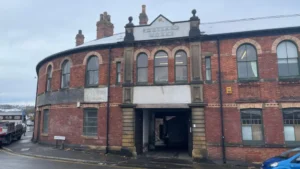
Emma Hardy, 33, makes and repairs violins at Portland Works, including for nationally acclaimed Sheffield folk artist Nancy Kerr.
Ms Hardy, of Hardy Violins, says she has now been working from Portland Works for a year.
“It’s the perfect space for me,” she says.
“It has big, beautiful windows as it’s an old industrial building. They don’t make them like they used to.”
“Because it’s a community-owned building, the rent is reasonable. That’s really important.”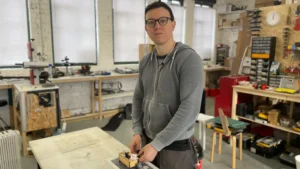
David Riley, 38, who runs a model-making firm at Portland Works, believes that sense of community at the site is vital.
“You can learn from each other,” he says.
“It gives you the chance to really understand what it’s like in different industries.
“You can take bits from that and apply it to your own work.”
Among other things, Mr Riley makes models for TV and film from his workshop at Portland Works.
His clients have included firms such as Sainsbury’s, with their Christmas advert in 2016 featuring models made by Mr Riley.
He says he enjoys working from the “beautiful and historic building” and praises the way it is run.
“In terms of looking after its tenants, the ethos is a good one,” he says.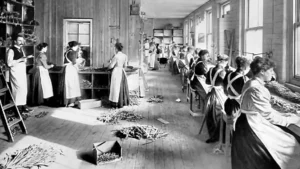
While much creative work carries on within the rabbit warren on Sheffield’s Randall Street, there is, of course, also other work to be carried out on the Victorian building itself.
Following a half-century of neglect before it became a community enterprise, volunteers are now carrying out an extensive £1m renovation programme at Portland Works.
Over a decade on from the takeover, they have another half a million pounds’ worth of work still to do.
Mr de Lange says a huge amount of effort is required to keep the Portland Works site running and that is quite a challenge.
“It’s going to be like the Forth Bridge,” he says.
“We’ve got 250 windows and they require painting every few years.
“We’re not even keeping up with that, let alone keeping up with the repairs.”
However, despite the challenge of maintaining the 145-year-old site, violin maker Emma Hardy says she looks forward to staying at Portland Works long into the future.
“These days, spaces like this are largely profit-making organisations, whereas Portland Works’ whole remit is to provide affordable space for people like me,” she says.
“That community-owned element means that not only will it stay a space for makers, it will stay a space for a diverse set of makers – and not just the people who come from families that can support them in that.”

